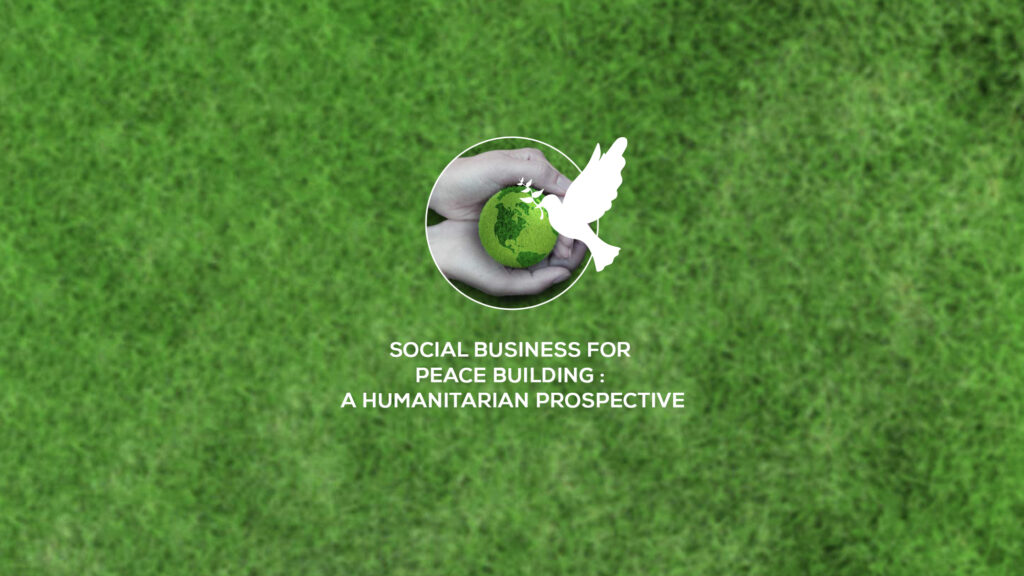At the outset, it gives me a great pleasure to congratulate one and all for being present at the 41st Annual Convention of Odisha Commerce Association being held in L. N. College, Jharsuguda on 24th & 25th December 2021. It is an achievement in itself for all of us, for hosting this mega conference in physical mode in the midst of the Covid-19 pandemic. I would like to thank the authorities of the L. N. College for meticulously planning and hosting this important meet by following the Covid norms.
Odisha Commerce Association was established 51 years back with an objective of promoting Commerce, Business, Management landscape and education in the State. It has contributed substantially in connecting the experts, academicians, teachers, industrialists, entrepreneurs, professionals to work together for promotion of business and industrialization of the state.
The spread of Commerce & Business Education and the fast growing popularity for the stream nationally has attracted the young talents and researchers to get engaged and further their studies in different allied courses like Chartered Accountancy, Company Secretaryship, Cost Accountancy, Management, etc. As many as 40 lakh students have been engaged per year in Commerce education in the country for the last 20 years. The State has 343 Commerce colleges, 165 Management colleges and 2461 industries which are working in different domains of business.
State of Odisha is one of the mineral rich states in the country having abundant reserves of high-grade Iron ore, Bauxite, Chromite, Manganese ore along with other minerals such as Coal, Limestone, Dolomite, Nickel, Vanadium, Lead, Graphite etc. The state also has uniqueness in terms of having long coastline, sanctuaries, waterfalls, natural hills, water bodies, temples, advanced healthcare facilities and robust education system. The Presidential Address by Prof. Sasmita Samantafocus of the state has always been tourism, medical tourism, education, indigenous and traditional skills, occupation and culture.
In the last two decades, the State of Odisha has grown in all dimensions because of the robust strategies of the State leadership supported by the Central leadership, particularly in the field of industrialization, transportation, IT, healthcare, women’s employment, education, infrastructure, sports and governance.
The State has developed the road connectivity to the sources of mines, metals, minerals, agricultural and handicraft products, paving way for their fast transport across the State, national and global markets. As a result, the export revenue has substantially gone up to around Rs. 74000 crore. The process developed for connecting challenges with potentials of the people and to promote the traditional skill and occupation of the people of the State is now showing result and empowering people at the grassroots. The State has achieved excellence through ‘Mission Shakti’ by organizing 70 lakh women into self-help groups. This novel programme has been empowering those who are producing the food, other agricultural products and handicrafts. It is helping women workers of the State in increasing their purchasing capability and providing them the platform to connect with the business mainstream.
Economic empowerment has changed the livelihood landscape and checked the migration of workers to other States. Indeed, it has created the platform for Odia migrant workers to come back to the State and get engaged in development activities in their villages.
Not only economic empowerment, the vision of the State leadership is to bring the women at the forefront of the democracy. It seeks to ensure their participation in the political decision making process by reserving 50% of seats for women at Panchayat level and 30% in the Assembly. This will go a long way in providing equity and equality to all the citizens of the State.
In his celebrated book ‘The Wealth of Nations’, Adam Smith mentioned that a farmer has sufficient skill and expertise to take decision on crops to be grown on his land. He draws his knowledge from years and experience and experiments of his ancestors. His decision will be as valuable as that of any highly educated agriculture planner of the country. This hints at the need to respect indigenous knowledge and empower the hands-on workers, those who are engaged in different fields starting from construction to various traditional occupations.
A system to encourage autonomy and capacity building of the grassroots workers is necessary to achieve the ambitious goal of ‘Atmanirbhar Bharat’, which seeks to make the country and its citizens independent and self-reliant in all senses. Founded on the five pillars – Economy, Infrastructure, Technology, Demography and Demand, it envisions a self-reliant India by focusing on Micro, Small and Medium Enterprises (MSME) and turning it into the backbone of the Indian economy. It will empower the resurgence of Indian Economy and make India a significant power in the world economy. The acclaimed management thought leader, Peter Drucker also vouched for decentralization. Advocating a decentralized administration, he suggested delegation of authority to the ground-level workers, those working in the last level of the organizational structure. Role of top-level managers and seniors are there to facilitate their activities without much intervention in their day-to-day activities. This will increase the productivity of the organization and allow senior management time to focus more on strategizing, branding and planning for exigency.
Local knowledge skill with global vision can drive the change and empower each and every individual; not only for their physical position but also for the challenge, principles and values they carry. Many visionary scholars in Business & Commerce have tried to develop the Innovative Accounting and Management processes to bring transparency in the system. This ensures effective and judicious utilisation of the resources providing equal opportunities to all to contribute and to grow.
As per Philip Kotler, the Father of Marketing Management, the focus should be on bringing the goods that satisfy the individual aspirations and desires of generation. His second concept of identifying the common need of the targeted audience and planning to satisfy that need has slowly changed the marketing landscape in the last few decades. Marketing 3.0 emphasizes understanding the individual client instead of individual group and trying to identify the common aspirations and developing the product according to that and serving with quality service and values. Digital Marketing has emerged as the Human Centric Marketing Strategies, which is being facilitated ubiquitous digitization. As Kotler said, “The most important thing is to predict where clients are going and stop right in front of them”.
Beyond producing the best possible goods, services and ideas at the lowest possible cost, businesses today are expected to be more closely engaged with society at large. United Nations Global Compact focuses on building relationships among the business houses by reducing the conflicts and promoting stability for advancing peace in the world. It has become important for the businesses to sincerely adopt sustainable and socially responsible policies to gain respect as well as to ensure their own sustainability in today’s connected world.
Business houses today are not confined with the objective of generation of profit, but have trained themselves for creating values in the society, in human life, in economics and in business itself. Because of the reliability and sanctity of business processes, it is observed that it is not only being used for the establishment of business houses but also being used for developing the model to be followed in the field of social sciences for creating the social impact, healthcare services, for providing quality and authentic healthcare to the people and many more.
Many companies with a high sense of social responsibility have adopted social entrepreneurship in trying to address the long existing societal issues. Social entrepreneurship employs entrepreneurship principles, processes and skills in execution of innovative plans, providing solutions to social problems and bringing the much needed transformation in the society. This could predominantly be seen in the engagement of various corporations/ industry during the humanitarian crisis caused by the Covid-19 pandemic.
Organizations established to achieve excellence through a resilient process, develop the long driving sustainable system to serve the humanity with an intelligent system built to filter out the critical information and provide regular alerts for improvement.
The business and commerce education is engaged in equipping the students to make them effective professionals, scholars and experts in the new ecosystem. Today all the fields of education – Commerce, Business, Technology, Social Science, Healthcare, Geography, History, Management – is converging into Business Education.
The future of commerce, including commerce education, is part of all the stakeholders, including the universities, the teaching fraternity, industry and government. Students of state of Odisha have high analytical skills and problem solving capabilities because of the natural upbringing process and academic grooming. There is a need to develop independent commerce institutions and rebuilding the existing universities and colleges, that have been self-reliant in terms of quality education characterized by their inclination towards research and provide the students with inputs that are globally and socially relevant. There’s also a need of involvement of distinguished researchers from Industry and HEIs in Industry Academia Advisory board for their inputs in designing curricula and establishing an active connect with Industry, Corporate and other sectors for creating a resilient curriculum and pedagogy for building future generation leaders . Odisha Commerce Association established with the mandate of the
furtherance for academic, research and industrialization of the State has a great role in coming days in the eve of NEP for making the human centric strategies by taking into consideration international, global and local opportunities and challenges, talents and potential, and policies in place.
I wish the youngsters and scholars engaged in the field of Commerce try to bring their perspective into the subject to make it one of the sought after subjects and contribute to development of humanity in the globe.
Lastly I wish the 41st Annual Conference of Odisha Commerce Association a grand success.
Jai Hind!
MORE POSTS
4 Comments
ABOUT

Sasmita Samanta
Prof. Sasmita Samanta is an accomplished academician and administrator with more than two and half decades of experience in strategizing excellence in professional and technical education. Currently she wears the mantle of Professor of Management and Vice-Chancellor of KIIT Deemed to be University.









Respected Madam,
Thanks for Presenting this
Wonderful article written on
Business and Commerce Education for Building a Resilient Society on the eve of
41st Annual Convention of Odisha Commerce Association being held in L. N. College, Jharsuguda on 24th & 25th December 2021.
This covers in a broader sense the importance of Business & Commerce Education for Building a resilient Society touching many aspects of it.
My submission is as per below:
With the mainstream of business education and managerial practice focused on managing performance, resilience represents not just an opportunity to mitigate risk but also an opportunity for competitive advantage for enterprises who choose to focus on it.
In today’s business world, transient high performance is commonplace; it is sustained performance by resilient companies that stands apart.
Resilience is especially important today because the business environment is becoming more dynamic and unpredictable.
This is a result of several enduring forces stressing and stretching business systems from accelerated technological evolution to a greater interconnectedness of the global economy to broader issues such as rising inequality, species depletion, and climate change.
Traditional management approaches have several important limitations that make measuring and achieving resilience difficult:
Managing for resilience therefore requires more than just grafting new ideas or tools onto today’s approaches.
It requires a fundamentally different mental model of business — one that embraces complexity, uncertainty, interdependence, systems thinking, and a multi-timescale perspective.
Companies can structure their organizations and decision processes for resilience by embracing six principles of long-lasting systems
Redundancy
Diversity
Modularity
Adaptability
Prudence
Embeddedness
The Benefits of Resilience
When confronted with unanticipated stress, a company that employs resilience principles has multiple advantages that play out sequentially.
Anticipation benefits
Impact benefits
Recovery speed benefits
Outcomes benefits
Crises are opportunities for change.
With Covid-19, companies have a unique opportunity and necessity to revisit their business models to build greater systemic resilience, starting with the following six actions:
Seek advantage in Adversity
Look forward
Take a collaborative systems view
Measure beyond Performance
Prize diversity
Change as the default
With the mainstream of business education and managerial practice focused on managing performance, resilience represents not just an opportunity to mitigate risk but also an opportunity for competitive advantage for enterprises who choose to focus on it.
Andy Warhol famously said that in the future, everyone will be famous for 15 minutes.
In today’s business world, transient high performance is commonplace; it is sustained performance by resilient companies that stands apart.
Bijoy Kumar Mishra,
GM(CSR & CL),
KIIT & KISS
Great article'….
The auxiliary words like, business, commerce, trade – all stand aside "Education". And, that is the reason, Hon'ble Founder Sir, KIIT Group of Institutions, always says, the 9-letter word, i.e. Education eradicates poverty.
Thanks a lot madam for the beautiful presentation through the Article. May almighty bless for more and more of such kind.
O/o DyCoE & O/o Dean
School of Civil Engineering
KIIT University, Bhubaneswar
Cell: 9861385500
Unique one, the masterpiece…